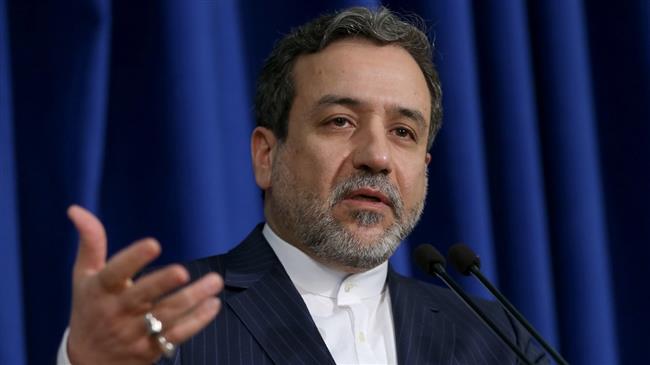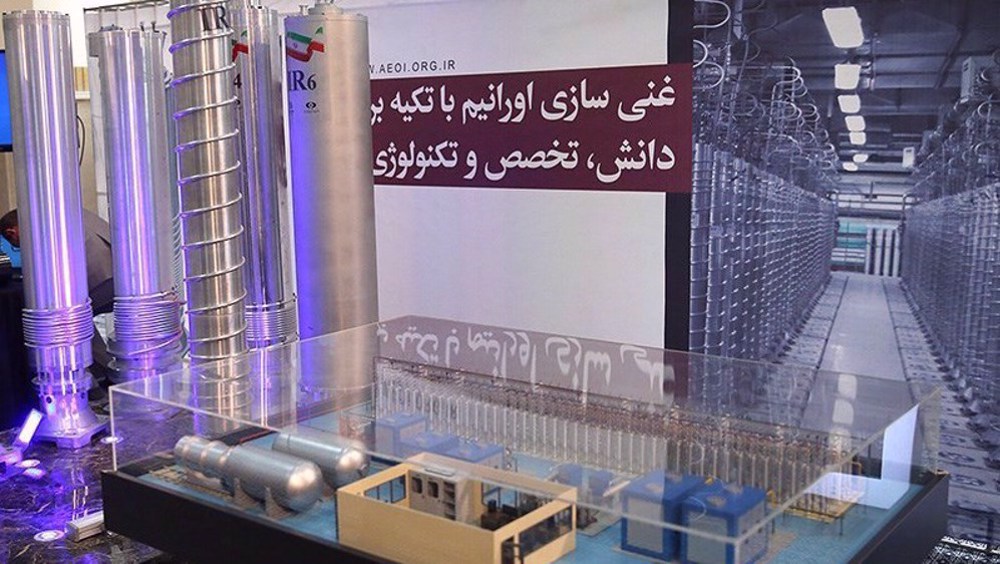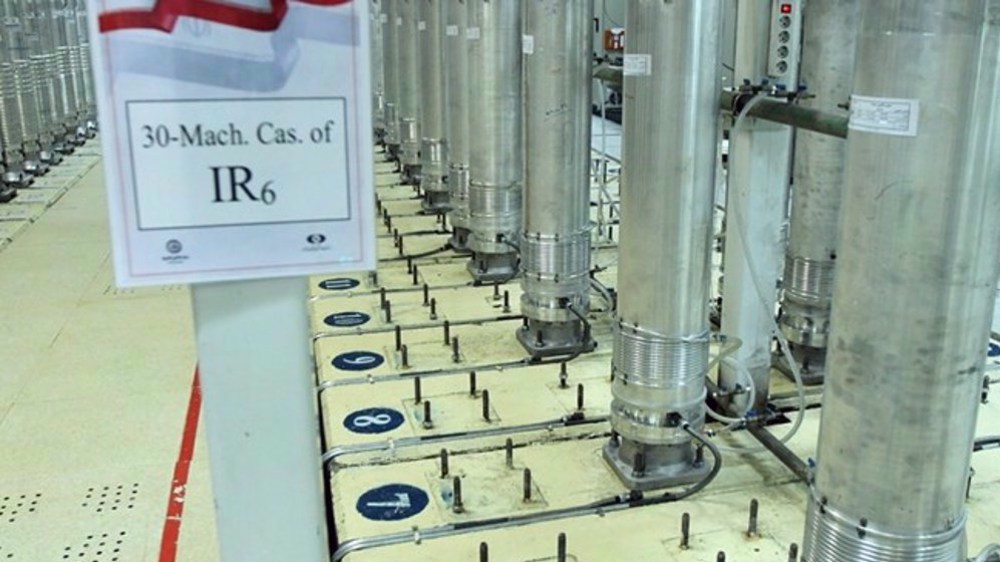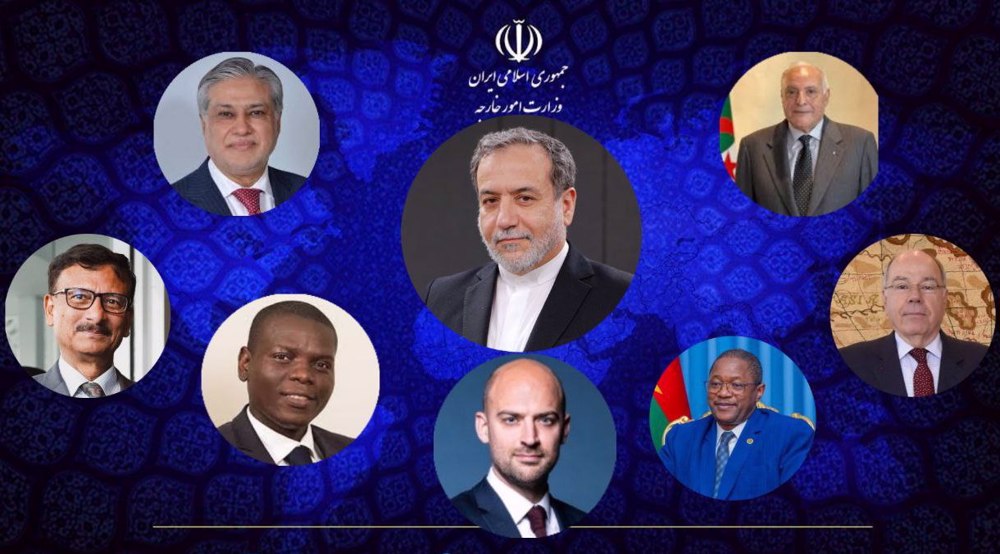US sanctions at odds with Europe sovereignty, credibility: Iran diplomat
A senior Iranian diplomat says sanctions imposed by the United States on Tehran primarily violate Europe’s sovereignty, security and credibility rather than target Iran's economy.
"We are waiting to see how Europe will defend its sovereignty against Washington's pressure," Iranian Deputy Foreign Minister for Political Affairs Abbas Araqchi, who is in Madrid for talks with senior Spanish officials, said on Friday.
Earlier this month, the administration of US President Donald Trump announced the re-imposition of the “toughest” sanctions ever against Iran's banking and energy sectors with the aim of cutting off the country's oil sales and crucial exports. The announcement came after it withdrew in May from the landmark Iran nuclear agreement, officially known as the Joint Comprehensive Plan of Action (JCPOA), and decided to re-impose unilateral sanctions against Tehran.
Under the deal, reached between Iran and the P5+1 group of countries -- the United States, Britain, France, Germany, Russia and China -- in 2015, Iran undertook to put limits on its nuclear program in exchange for the removal of nuclear-related sanctions.
A first round of American sanctions took effect in August, targeting Iran's access to the US dollar, metals trading, coal, industrial software, and auto sector.
Araqchi further said the international community, except one or two countries, has condemned the US move to re-impose "unlawful" sanctions against Iran in violation of the United Nations Security Council Resolution 2231, which endorses the JCPOA.
However, the US is using its economic power and the dollar to impose its own demands on other countries, he added, noting that European companies seem to be taking US orders more seriously than those of their own governments.
The senior Iranian diplomat pointed to the latest report by the International Atomic Energy Agency (IAEA) that confirmed for the 13th times the Islamic Republic's adherence to its commitments under the JCPOA and said the "unreasonable and illogical" US exit from the JCPOA would lead to countries' lack of trust in dialogue, diplomacy and the Security Council's strategies.
The IAEA said on Monday that Iran has continued to implement all its commitments under the 2015 nuclear deal even as the United States re-imposed fresh sanctions against Tehran.
According to an IAEA's report, Iran has been complying with the restrictions to its nuclear program laid down in the JCPOA as of early November.
Araqchi warned that the possible collapse of the nuclear accord would lead to more crises in the Middle East and pose challenges to the ongoing situation in the region, Europe's security and the international system.
"We still hope that Europe will be able to manage the current situation" despite the US pressure, he said.
In a meeting with Director General for Political Affairs at the Dutch Ministry of Foreign Affairs Andre Haspels in Tehran on Tuesday, Araqchi warned that the possible collapse of the historic nuclear agreement would certainly add to political complications in the Middle East.
"If the JCPOA collapses, it means the defeat of diplomacy and the dominance of bullying in the international arena and this issue will absolutely add to the political complications in the Middle East region," the senior Iranian diplomat added.
Despite Washington's withdrawal, Iran has not left the deal yet, but stressed that the remaining signatories to the agreement have to work to offset the negative impacts of the US pullout for Iran if they wanted Tehran to remain in it.
The other parties to the JCPOA have repeatedly announced that the deal is working and should stay in place.
Read more:
- Sanctions will fail to hinder Iran's progress: AEOI chief
- World opposes US anti-Iran policies: FM Zarif
- US food, medicine sanctions endanger lives of Iranian patients: Medical academy official
- Europeans will benefit from independent role vs. US: Iran's Larijani
- US will regret unwise moves against Iran: FM Zarif
Israel kills 5 more paramedics in southern Lebanon: Health ministry
Iran to launch ‘new, advanced’ centrifuges in response to IAEA resolution: AEOI
Yemen fires hypersonic missile at Israeli airbase
VIDEO | New Delhi chokes under toxic smog as air quality remains at hazardous levels
VIDEO | Press TV's news headlines
VIDEO | ICC's arrest warrant for Netanyahu to worry Western politicians: Former British diplomat
Iranians protest against Israel after Netanyahu ICC warrant
Germany undecided on complying with ICC arrest warrants for Israeli war criminals












 This makes it easy to access the Press TV website
This makes it easy to access the Press TV website